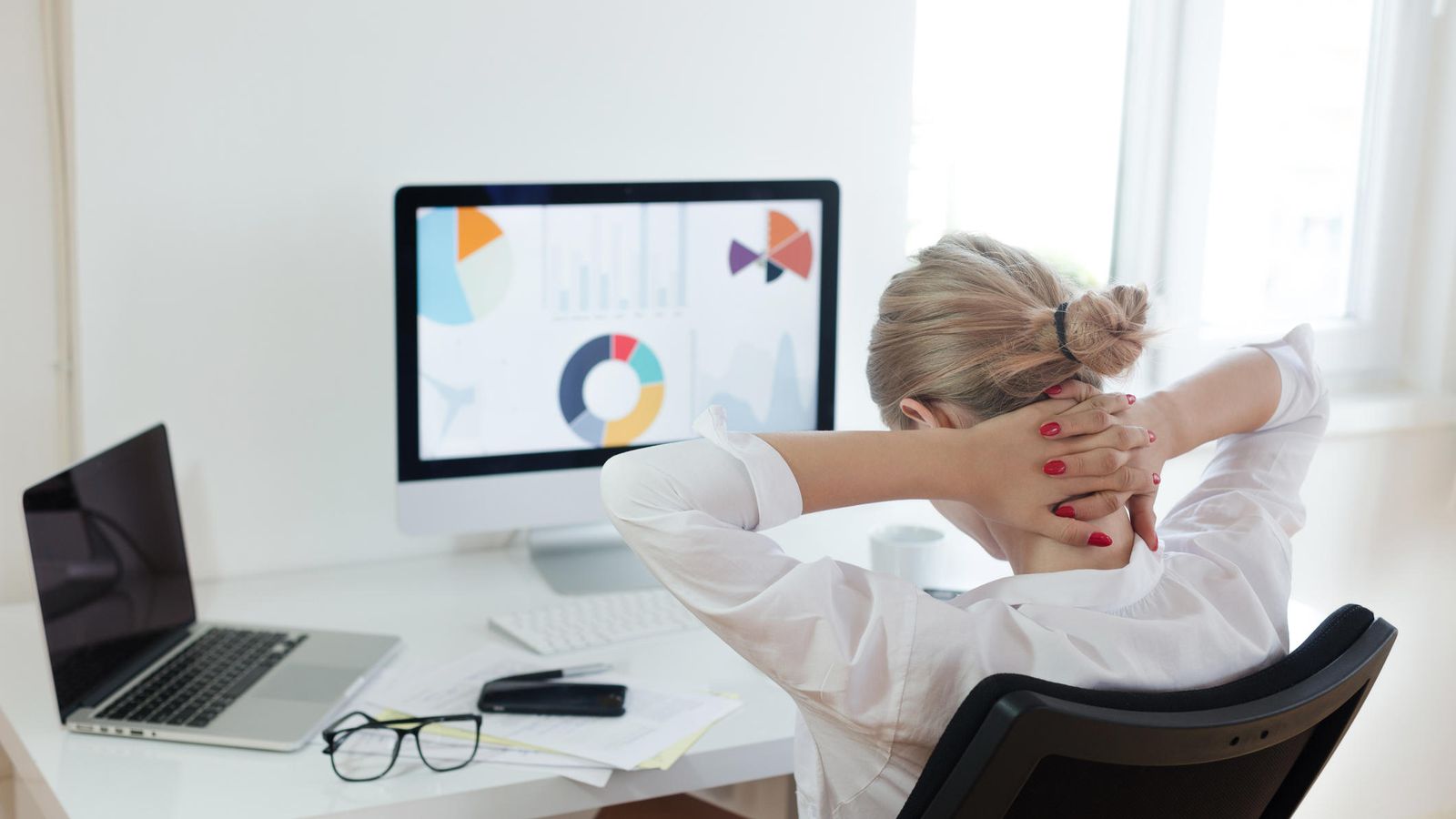Learn about brain health and nootropics to boost brain function
Your desk job wreaks havoc on your body, here’s how to fix it


Since 1960, the percentage of physical activity at work has decreased by about 30 percent, largely due to the increase in office jobs that require sedentary work.
We know that sitting is linked to health complications such as weight gain and increased risk of heart disease. In fact, one study even purports that people who exhibit sedentary behavior are more likely to die early.
If you work in an office, chances are you spend more time there than you do at home, if you don't count sleep. If you don't optimize the place you spend 40-plus hours each week, you can't really expect healthy habits to spill over into the rest of your life.
And if you work from home, it's even more critical to set up a workspace that's conducive to healthy workplace habits, because an at-home workspace presents a unique set of challenges (like your couch calling your name just a few feet away).
Here are five ways to stay healthy and comfortable at work.
Protect your eyes
If you're like the average office worker, you spend about 1,700 hours per year in front of a computer screen, not counting the hours you spend scrolling on your cell phone, watching TV or looking at other devices.
That's a frightening statistic considering that the blue light emitted from our screens is associated with blurry vision, dry eye, sleep disorders and headaches. One way to deal with blue light exposure is to get blue light blocking glasses. They use filters to block or absorb blue light before it makes contact with your eyes.
Wearing them throughout your work day may reduce eye strain, ward off headaches and result in a better night's sleep.

Create visual resting spots
Speaking of eye health, give your eyes a rest periodically. The American Academy of Ophthalmology recommends the 20-20-20 rule: every 20 minutes, gaze at an object 20 or more feet away for a minimum of 20 seconds.
If you find your eyes or brain to be really strained, look away from your computer screen or paperwork for two to five minutes. You can close your eyes gently, roll them around to "stretch" them or gaze at visual resting spots that are soothing to you.
A visual resting spot might include:
- A photograph you love -- bonus points if it includes a scenic landscape or gathering that brings you happy memories.
- A floor plant, small desk plant or vase of flowers. Studies show that keeping greenery in your office can enhance mood and productivity.
- A piece of artwork you find peaceful
Using a window as a visual resting spot is even better, because research shows that workers exposed to natural daylight tend to exercise more and sleep better than those who don't get enough natural light.
Fend off carpal tunnel
Although the science isn't clear on whether desk jobs really result in true carpal tunnel syndrome, most office workers know that typing for hours on end can lead to sore or stiff wrists, hands and forearms.
One of the simplest steps you can take for a healthier desk space is to invest in a keyboard cushion, mouse cushion or both. Amazon is home to many, but my favorite is the Gimars memory foam set, which includes a keyboard cushion and a mouse cushion.
This set is lightweight but still holds its shape, perfect for a worker like myself who often types for hours on end. I've been using this Gimars set for the past few months and I've noticed a significant difference in the way my wrists and hands feel at the end of a workday.
Improve your posture
We know the benefits of ergonomic office furniture and standing desks, but an item as simple as a lumbar cushion for your office chair can make a huge difference in your overall posture.
When I entered the office-job workforce, I wasn't prepared for the unsettling amount of time I'd spend sitting each day. I began waking up with new aches in my back and neck, and brief standing excursions from my desk to my counter-height kitchen table weren't enough to soothe them.
I invested in a simple memory foam lumbar cushion and it's worked wonders. The benefits don't stop at your lower back: After using my lumbar cushion for a couple weeks, I realized my upper back, shoulders and neck were all less stiff.
Keep things clean
Do you ever wonder how and why you suddenly fall ill? The culprit could be sniffly coworkers, or it could be a germy workspace.
Your mouse and keyboard could be germier than a toilet seat, and your desk surface might be harboring more than 20,000 bacteria per square inch. Keeping your workspace surfaces and devices disinfected is key to staying healthy at work.
A simple disinfecting wipe or spray will work for hard surfaces such as desks and non-cushioned chairs, but the nooks and crannies of your devices will need a little extra care. Try cleaning slime to extract dirt from your keyboard.
Don't forget about your phone too -- it can be 18 times dirtier than a public restroom. Try using a product like PhoneSoap, which uses UVC technology to kill germs and bacteria on the surface of your phone.
Bonus tip: Stay hydrated
If severe, dehydration is a dangerous health complication that can lead to fainting, fever and a rapid heart beat.
Even moderate dehydration (which most US adults live with) results in a range of undesirable symptoms, including fatigue, lightheadedness, dizziness, difficulty focusing and confusion -- not exactly opportune for a productive day at work.
Keeping a reusable water bottle at your desk, in plain sight, will help you remember to stay hydrated.
Click here to view full article